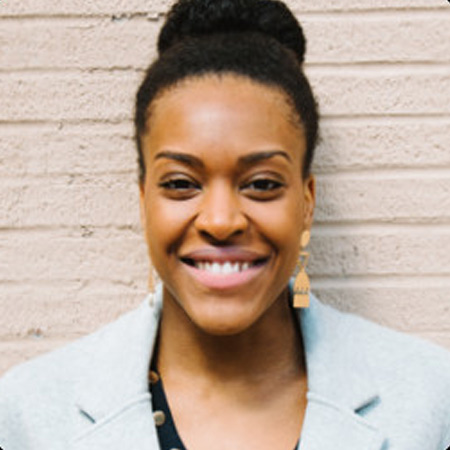The education philosopher Paulo Freire asserts that teaching is a reciprocal process through which teacher and student learn from one another. No student has taught me as much as Lakeisha Daniels. She was a brilliant 12-year-old, far more interested in reading The Diary of a Wimpy Kid than in watching Pretty Little Liars like her peers. She preferred accompanying me in my classroom during lunch to being with friends her age. I was lucky to know her.
Though tasked with teaching her, I channeled my inner Freire and learned from Lakeisha that a student is more than what you see on the surface. The issues that present themselves in the classroom are often just the tip of the iceberg.

PAINFUL LESSON Okoya wants to ensure that other educators can act before it’s too late.
While I was teaching Lakeisha, I noticed changes in her behavior and academic performance. She started missing homework assignments, falling asleep in class, and becoming more withdrawn. I talked to her grandfather (her legal guardian) about the decline in her work and asked him to help her stay on top of her assignments and get enough sleep.
As a teacher, I was well-trained to identify learning gaps, but not to detect the issues that might be underlie students’ academic struggles. The summer after I taught Lakeisha, she called to tell me she had been diagnosed with leukemia. I was in disbelief. We had compared summer reading plans just two weeks prior.
Her doctors later confirmed that her condition was the cause of her extreme fatigue and her inability to complete her homework. Once I reeled in my emotions, I thought, “no wonder!” – and also that I might have helped detect her condition earlier had I known to look beneath the surface.
As a teacher, I was well-trained to identify learning gaps, but not to detect the issues that might be underlie students’ academic struggles… Lakeisha’s death pushed me to look still further beneath the surface.”
—Wenimo Okoya
But how could I? Teachers are not trained to look for health issues or students’ underlying trauma – even though those issues powerfully affect their learning and achievement. Lakeisha’s death five years later pushed me to look still further beneath the surface. I came to TC to learn to help other educators do the same, because I don’t want them to learn the lesson the way I did.
Lakeisha’s lesson should be a central part of teacher preparation across the country. TC has a long history of leading the field. Let’s ensure that every educator has ample training to look “beneath the surface” before she or he enters the classroom.
—Wenimo Okoya
Wenimo Okoya is a fifth-year doctoral student in Health Education. She directs the Children’s Health Fund’s Healthy and Ready to Learn initiative
Related Stories
At TC once more, health education legend Michael Carrera (Ed.D. ’70) is “back in alignment”
Teaching Schools About Students’ Health: A movement is slowly being born